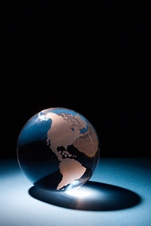 A glance at two maps – top import and expert country for each state in 2016 – reveals some interesting observations:
A glance at two maps – top import and expert country for each state in 2016 – reveals some interesting observations:
- On the export side, Canada is the leading destination from 33 states (including Indiana and 25 of the other 31 east of the Mississippi River)
- Mexico (six states) and China (four states) were next on the list
- Among the more intriguing partnerships: Nevada’s exports are going to Switzerland
- On the import side, nine countries are represented with China (23 states) and Canada (14 states) leading the way
- Indiana and Oregon are the two states in which the lead importer is Ireland (Happy St. Patrick’s Day, by the way!)
- Of Indiana’s four neighbors, China is tops in Ohio, Kentucky and Illinois, while Mexico (think auto industry) is the top partner with Michigan
- Hawaii stands alone with its top partners of Indonesia (imports) and Australia (exports)
According to the American Enterprise Institute:
Last year, American companies sold $2.2 trillion worth of goods and services to buyers in other countries, and American companies and consumers purchased $2.7 trillion worth of imports from trading partners all around the world. Seven states – Michigan, Louisiana, South Carolina, Tennessee, Kentucky, Washington and Texas – have their international trade represent more than 30% of their economic output.
Together, that volume of international trading activities represented 26% of the value of America’s $18.5 trillion in GDP in 2016. In terms of employment, more than 27 million American workers, about one in five, have jobs that are directly supported by trade with the rest of the world. Some states like California and Texas have more than two million jobs that are directly supported by international trade.

 This info is a bit surprising, but according to a recent study, the U.S. trails countries like Sweden, Singapore and Switzerland in technology use. In order to make up the difference, I plan to spend the next two weekends watching hours upon hours of YouTube videos of house pets whose owners insist they are talking (they think they’re people). USA! USA!
This info is a bit surprising, but according to a recent study, the U.S. trails countries like Sweden, Singapore and Switzerland in technology use. In order to make up the difference, I plan to spend the next two weekends watching hours upon hours of YouTube videos of house pets whose owners insist they are talking (they think they’re people). USA! USA!  The publication International Living just released its 30th annual Quality of Life Index, which attempts to answer the question, "Where is the best place to live?"
The publication International Living just released its 30th annual Quality of Life Index, which attempts to answer the question, "Where is the best place to live?"  The
The  Apparently, the United States government is putting the pressure on Swiss banks to reveal the identities of their American customers for tax purposes.
Apparently, the United States government is putting the pressure on Swiss banks to reveal the identities of their American customers for tax purposes.